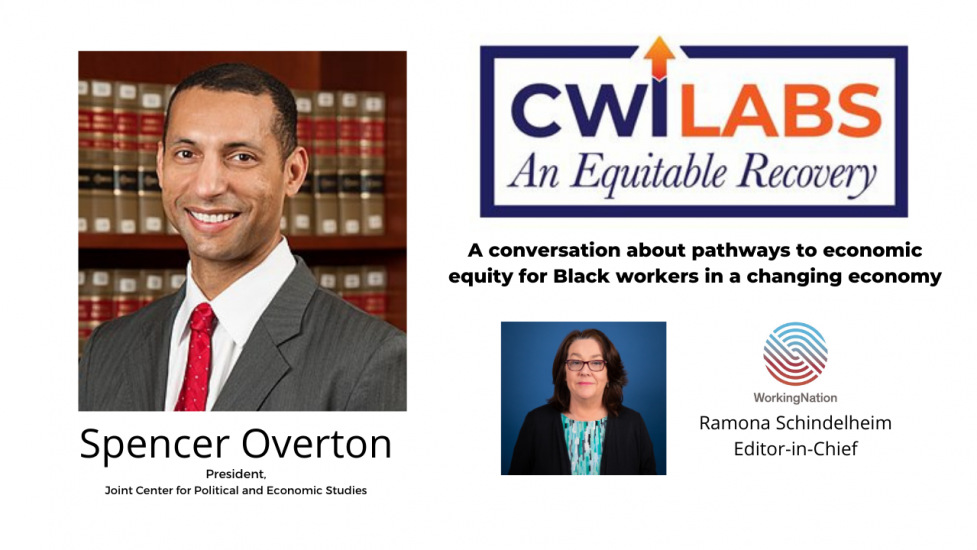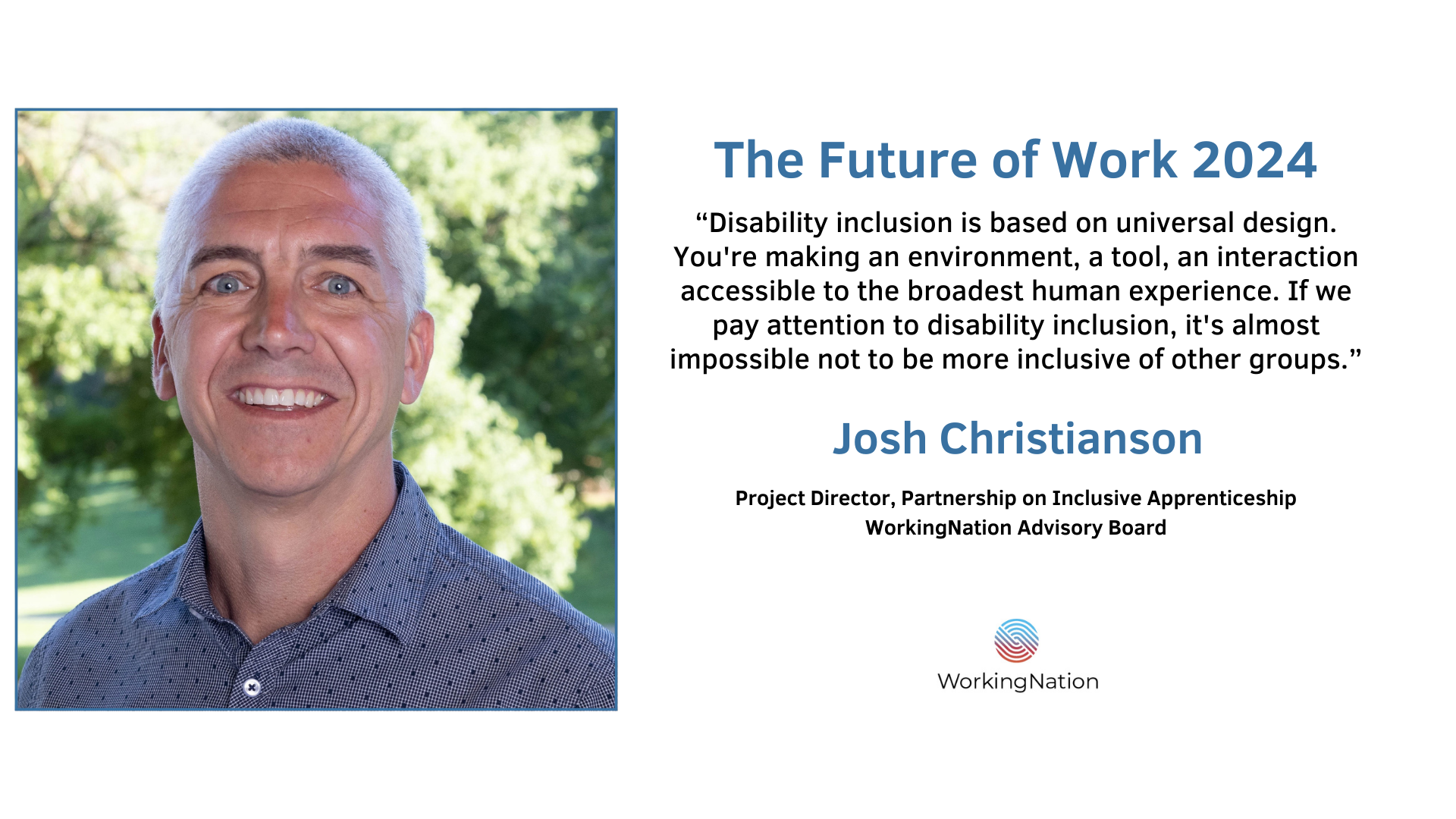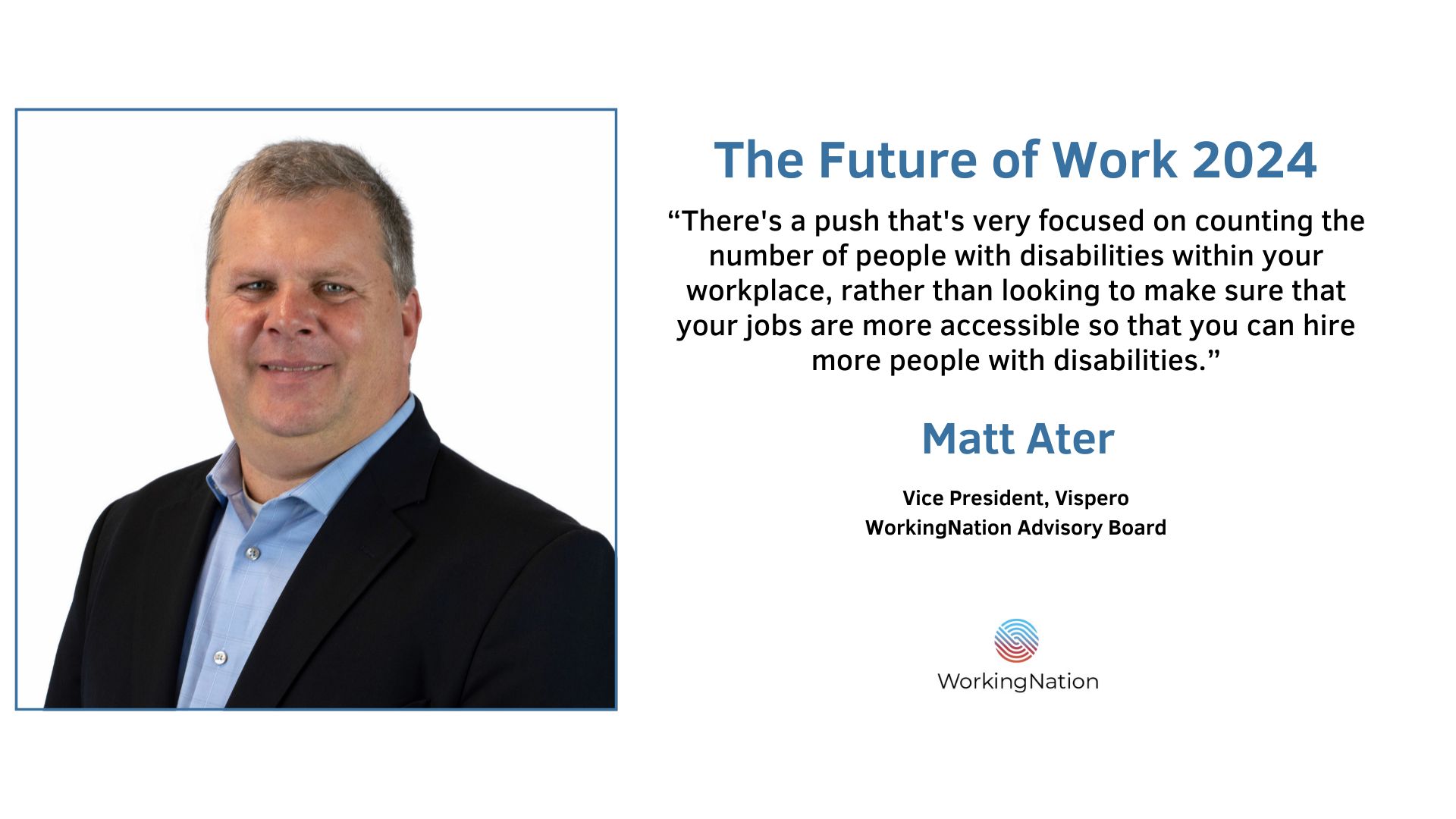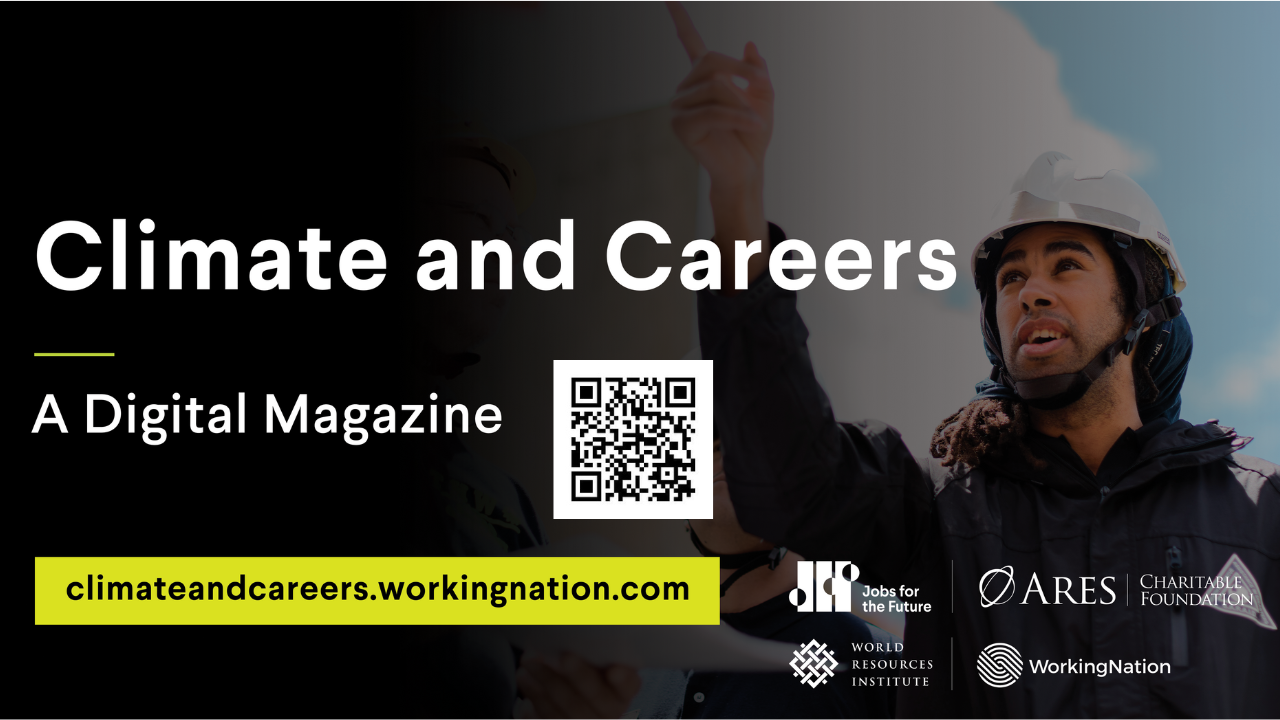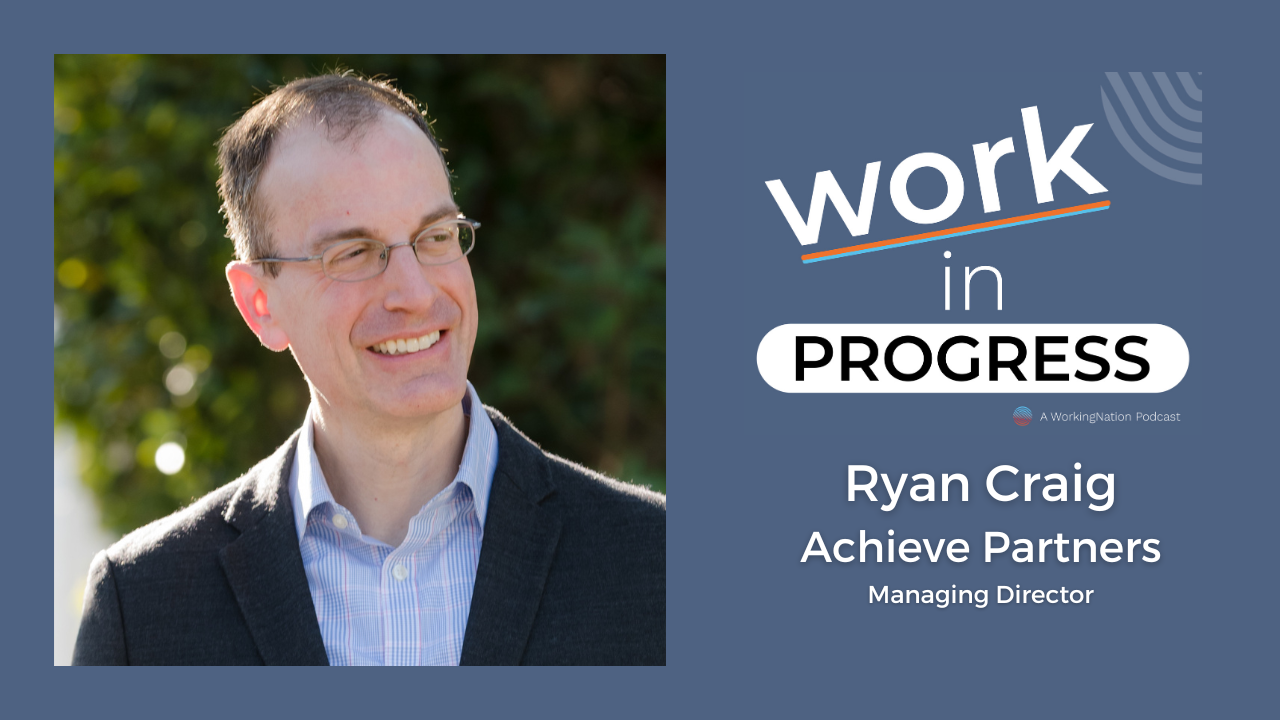As public and private institutions and organizations look to a post-pandemic recovery, there’s a lot of emphasis on what kind of skills are needed to get people back to work. And there’s very much a focus on how to make this recovery equitable to everyone.
Nonprofit CWI Labs, whose mission is to help underserved communities overcome workforce entry barriers, has partnered with WorkingNation to address the issue in a series of interviews for our An Equitable Recovery series.
We have invited experts in workforce development, labor economics, aging, racial equity and policy to discuss the challenges before our nation and, most importantly, to introduce thought-provoking solutions.
In this final interview in the series, Spencer Overton, the president of the Joint Center for Political and Economic Studies, joins WorkingNation’s editor-in-chief Ramona Schindelheim to discuss the issues facing Black Americans in the workforce.
“There were problems even before the pandemic. In 2017, we found that 27% of African American workers were concentrated in just 30 jobs at high risk to automation,” explains Overton. “More recently, we looked at a list of 10 top jobs (in which) there are more African American workers in these jobs than any other jobs. That list of 10 overlaps with another top 10 list, and that’s the top 10 list of jobs that will displace the most workers by 2030 pulled together by McKinsey.”
This overlap creates unique challenges for Black job seekers as they try to find their way back into the workforce.
“About 45% of African Americans have a high school diploma or less, and they average about $28,000 a year in terms of our earnings. The point here is what will we do with this large number of workers who will either be displaced by automation? And even if they’re not displaced by automation, how can we ensure that they have a brighter future, jobs that are better paid with benefits?,” he asks.
Overton discusses steps forward which involve looking at systemic issues in our society.
“Even if black folks had equal or superior skills and credentials, it seems from the existing data that disparities would still exist. So we definitely need to focus on skills, education, and credentials, they’re very important, but we also need to focus on these other systemic factors as well to remove barriers for economic mobility for black communities.”
Overton says that as we think about skills and education, we need to address the question: how can we ensure that all people have access to new skills that allow people to get new good jobs?
“This isn’t just a Black problem. It’s an American problem,” he adds. “Eliminating racial disparities translates into an additional $2.7 trillion per year in the United States, GDP according to the Kellogg Foundation. That’s a 13% boost to our GDP. It means more customers for businesses, more taxpayers to contribute to our collective obligations, and more innovation and creativity to ensure America leads the world in the new economy.”
In Case You Missed the Other Videos in the Series:
In this third of four interviews, Ruth Finkelstein, the executive director of the Brookdale Center for Healthy Aging, sits down with Ramona to talk about the obstacles facing older job seekers—particularly those from underserved communities—during the pandemic.
They look the troubling issue of low-income workers facing a greater risk of contracting COVID-19 for numerous reasons, including from their need to work in public-facing jobs, and the greater incidence of underlying health conditions.
In this second interview in the series, Julia Pollak, labor economist for ZipRecruiter, sits down with Ramona to discuss the impact of COVID-19 on small business owners, particularly those of color.
Among the insights: minority owners are less likely to ask for, and receive, financial assistance, leaving them at risk of losing their businesses. Julia and Ramona also look at the overall impact of the pandemic on the economy and the workforce, and at what it takes to heal the damage.
In the first interview in our series, Malcom Glenn, the 2020 CWI Labs Senior Fellow and the director of public affairs at Better.com, joins Ramona to discuss the challenges facing Black job seekers and how employers and policy makers can address those challenges in the short-term and the long-term.
You can read more about the series here: CWI Labs: An Equitable Recovery
Download the transcripts:
CWI Labs: An Equitable Recovery, An Interview with Spencer Overton
CWI Labs: An Equitable Recovery, An interview with Ruth Finkelstein
CWI Labs: An Equitable Recovery, An Interview with Julia Pollak
CWI Labs: An Equitable Recovery, An Interview with Malcom Glenn

